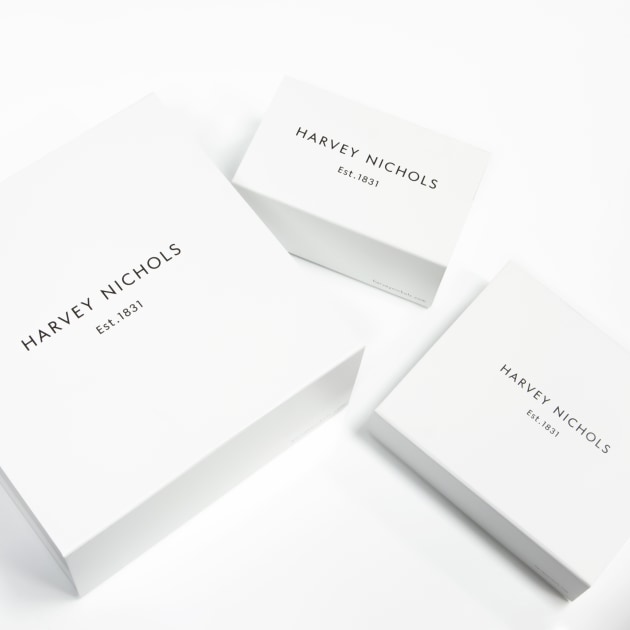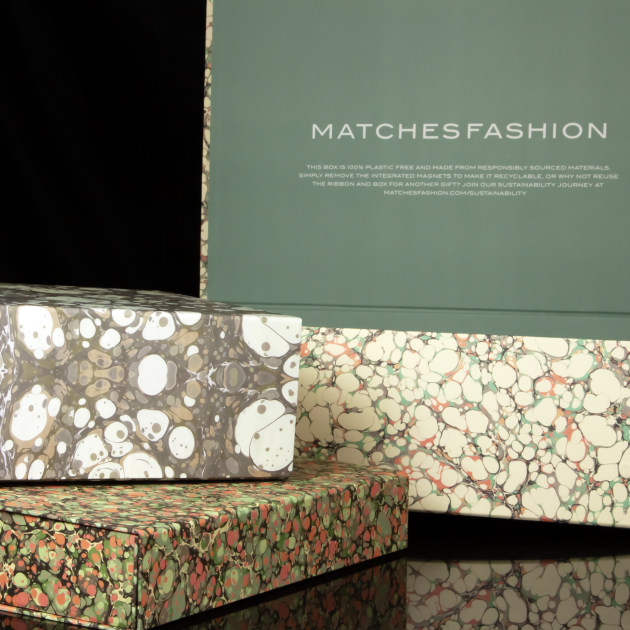A recent survey commissioned by luxury and sustainable packaging specialist, Delta Global, shows that environmental awareness is on the rise and is increasingly impacting how consumers in APAC, and Australia specifically, shop for luxury goods.
The comprehensive study, ‘Navigating a Greener Future’, was conducted in August 2023 by independent market research firm Inspiring-i and delves into the impact of sustainability on luxury consumers’ purchasing behaviours – particularly among Gen Z and Millennials, who will emerge as the biggest luxury consumers by 2031.
The study revealed that sustainability commitments have a tremendous impact on brand loyalty. The majority of interviewees said they would stop buying or buy less from a brand that does not care about its environmental impact. It also found that trends such as shifting purchases to more sustainable brands and buying or selling pre-loved luxury goods are growing across APAC, especially among Gen Z consumers.

“There is a perception that the luxury consumer in APAC is less knowledgeable and less concerned about environmental and sustainability issues compared to their European and US counterparts. Our survey revealed that environmental awareness is accelerating amongst luxury consumers in APAC,” said Robert Lockyer, founder & chief client officer of Delta Global.
“Additionally, from a demographic perspective, luxury brands that don’t prioritise sustainability initiatives will need to consider how this might hamper efforts to attract Millennials and Gen Z consumers, for whom environmental sustainability is a core consideration,” he said. noting that the survey was conducted to help luxury brands better understand their customers’ perceptions and decision-making processes and, in turn, empower them to implement sustainability initiatives that are “good for the planet, good for people and good for their bottom line”.
Impact on the luxury dollar
A key finding of the study is the heightened environmental awareness among luxury consumers, with more than 93 per cent of respondents claiming to be more environmentally conscious than they were two years ago. 52 per cent claimed to be “a lot more aware” compared to previous years with 64 per cent of Australian Gen Z consumers taking this stance.
With the increase in environmental awareness, it is not surprising that most Australian luxury consumers say they would reduce their support of luxury brands that ignore their impact on the environment. Of those surveyed across Australia, 91 per cent said they would stop buying, buy less or reconsider buying from brands that do not care about sustainability and 30 per cent said they would stop buying from these brands altogether.
In general, Australian luxury consumers look favourably on brands that prioritise environmental sustainability, with more than two-thirds saying they would buy more from these brands. This number was the highest amongst Gen Z customers, of whom 82 per cent would increase the amount they purchase to show their support. On average, Australian customers would pay up to 24% more for brands prioritising environmental sustainability, with Gen Z customers saying they would pay a premium of up to 34 per cent.
What drives luxury consumers away
For luxury brands, when it comes to environmentally sustainable practices (or lack thereof), it is critical to understand what drives consumers away. Luxury customers across Australia identified creation of excessive waste (65 per cent) a lack of transparency around sustainability initiatives (62 per cent) as their biggest turn-off, followed closely by non-sustainable packaging (60 per cent).
In line with this finding, 84 per cent of Australian luxury consumers said they would either stop buying from or spend less on a luxury brand that creates excessive waste.

When asked about non-sustainable packaging practices, luxury consumers across Australia agreed that excess layers of packaging (40 per cent) was the most irritating. This was closely followed by excessive use of plastic (34 per cent) and the use of non-recyclable or non-biodegradable materials (26 per cent). Interestingly, 91 per cent of Australian customers wished luxury brands would stop using plastic wrap in their packaging and 84 per cent agreed that the use of plastic was not representative of a luxury brand. Critically, over 86 per cent of Australian luxury consumers said that they would consider switching to another luxury brand that offers a similar product but uses less packaging.
Australian luxury consumers now rank a luxury brands’ values and real-world impact on par with the brand name
The survey also revealed that Australian luxury customers considered a brand’s values, real-world impact and sustainability initiatives to be just as important as the brand name when making purchasing decisions. They also cited sustainable manufacturing practices (93 per cent), the use of more recycled, sustainable, and naturally harvested materials (92 per cent) and a commitment to carbon footprint reduction (90 per cent) as the most important sustainability initiatives for luxury brands.
The majority of respondents in the region were also willing to support or spend more on luxury brands that actively promote and communicate their sustainability efforts (90 per cent). Additionally, 95 per cent of Australian customers surveyed said they would recommend a luxury brand that actively promotes sustainable fashion practices.
“Luxury customers in Australia are increasingly considering brand values and a company’s real-world impact in their purchasing decisions. With the survey bringing to light luxury consumers’ unquestionable desire for more knowledge about their favourite brands’ sustainability practices, businesses need to prioritise getting this information out and through the right channels and touchpoints to ensure their messages are heard loud and clear. Whilst brands may harbour concerns about communicating their sustainability efforts in case they fall short of consumers’ expectations, failing to communicate at all, as the research points out, carries a huge opportunity cost and may fail to appeal to the next generation of luxury consumers”, comments Lockyer.
Communication is key
In view of this, it is vital for luxury brands to communicate their sustainability efforts as effectively as possible. 91 per cent of Australian luxury consumers want to know more about their favourite brands’ environmental initiatives. Over one-third of consumers in Australia said they lack sufficient knowledge or are entirely uninformed about the sustainability efforts of their favourite luxury brands.

Overall, Australian consumers find a brands website (63 per cent) the easiest way to learn about the sustainability efforts of their favourite luxury brands, followed by product packaging (61 per cent). The majority considered sustainability initiatives or certifications printed clearly on the packaging (94 per cent) as the easiest way to identify a sustainable luxury brand. Additionally, 94 per cent of Australian respondents said they wish to see a luxury brand’s zero-plastic commitment or related sustainability accreditations on its product packaging.
The survey also revealed that 83 per cent of luxury customers in Australia often keep their packaging after a purchase. The most popular reason for keeping luxury boxes is to repurpose them as storage for other items (57 per cent), followed by reusing them for packaging gifts (42 per cent). According to the survey, the most likely boxes to be kept after purchase by luxury Australian consumers were jewellery (69 per cent), watches (68 per cent) and shoe boxes (66 per cent).
“Given that shopping and consumption is here to stay, brands are in a unique position to drive positive change. Implementing sustainability practices is an important part of the process, and one that requires unwavering commitment as well as continuous improvement. It’s a mistake for brands to try and go from zero to hero and do everything at once. Instead, they should commit to an authentic strategy that is in line with the brands’ values and take small but meaningful steps to move the brand forward.
“Consumers appreciate the effort that brands undergo provided they remain transparent and accountable as they work towards key milestones and effectively communicate these to the customer Lockyer explained.
What does this mean for packaging design?
“Design is a powerful tool when it comes to sustainability. Historically, laminated finishes, excessive layers and non-recyclable materials were prevalent in packaging used by the Luxury sector, at the detriment of the environment.
“Ultimately, packaging should protect the product and promote the brand – designing with sustainability in mind allows us to achieve this, whilst still ensuring an elevated experience for the consumer. We must focus on utilising responsibly sourced materials and develop constructions that deliver functionality, that can be reused, repurposed or recycled.
“Designing using mono-materials where possible and taking steps to achieve range rationalisation and optimisation will have a positive knock-on-effect on all aspects of the supply chain – from production and inventory management to CO2 emissions, all contributing to a more sustainable industry.”






